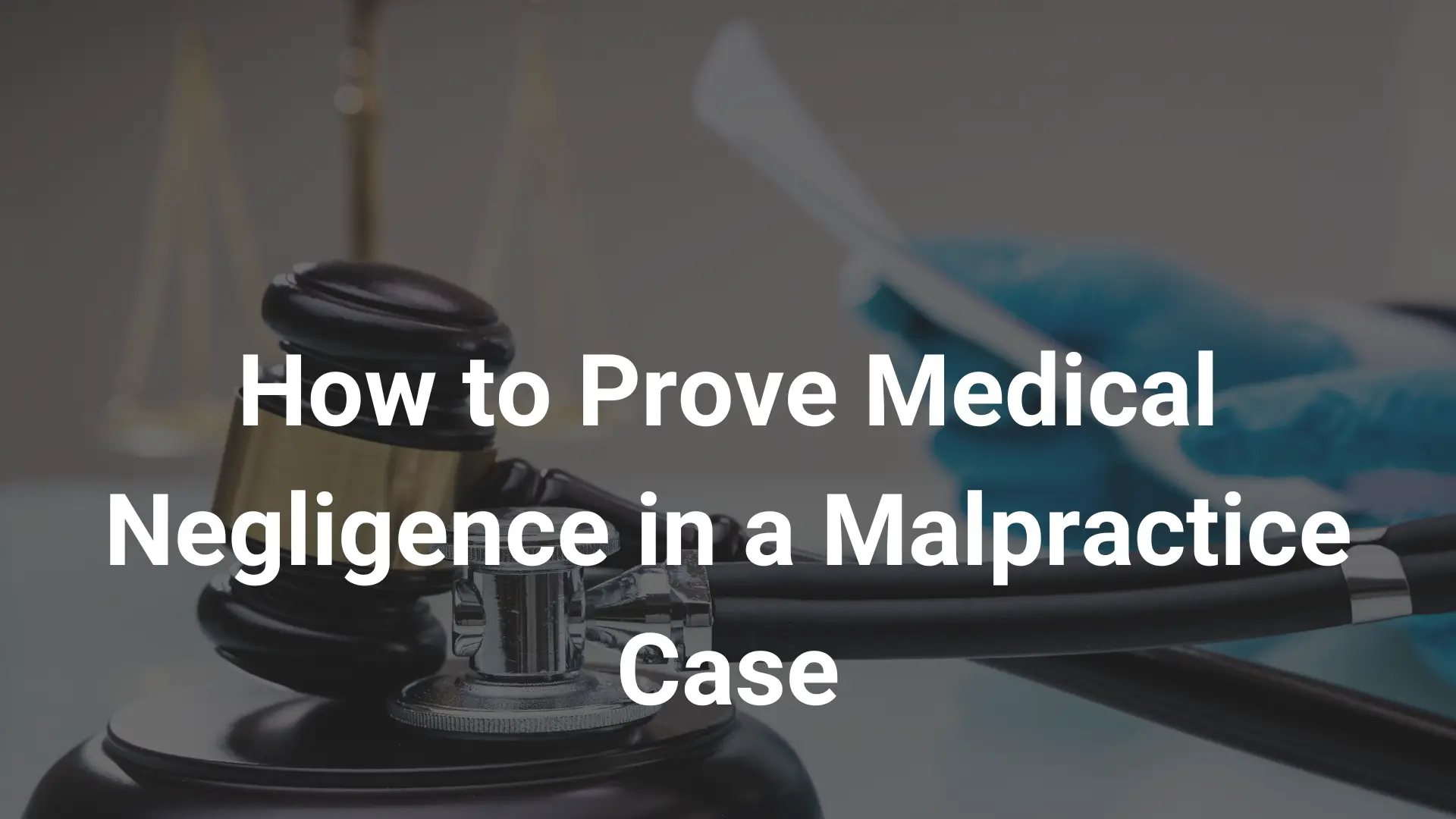
You trusted your doctor to help you get better. Instead, something felt off – maybe a missed diagnosis, a procedure that didn’t go as planned, or a treatment that worsened things. Now you’re left wondering what went wrong and what you can do about it, and that often starts with proving medical negligence injury and understanding how a healthcare provider’s mistake may have led to your suffering.
Not every bad outcome means malpractice. However, when a healthcare provider makes a mistake that causes serious harm, the law gives you a way to hold them accountable. You’ll need more than a feeling that something wasn’t right. You’ll need evidence, medical records, and expert insight, but how do you prove medical malpractice when the system works against you?
That’s where Huntington Beach medical malpractice lawyers can help. Before you file a claim, it’s essential to understand what medical negligence means, how the law views it, and what it takes to prove it.
What Is Medical Negligence?
Medical negligence happens when a doctor, nurse, or other healthcare provider fails to meet the accepted standard of care. It means they made a preventable mistake that a reasonably careful provider wouldn’t have made under the same circumstances.
Medical negligence takes many forms. A doctor might misread test results, miss a clear diagnosis, or skip important steps during surgery. A nurse might fail to monitor a patient’s condition. A hospital might delay treatment or discharge someone too early. These mistakes can lead to serious injury or death, and they often leave families searching for answers.
California law allows you to file a medical malpractice claim when that negligence causes harm. But you’ll need to prove it – and that starts with understanding the legal elements behind every case.
The Four Legal Elements of a Medical Negligence Case
You’ll need to prove four legal elements to win a malpractice case. Your case must meet all four of them to move forward:
- Duty of Care – You must show that a doctor-patient relationship existed. This part is usually straightforward. If a healthcare provider treated you, they owed you a duty of care.
- Breach of Duty – This means the provider failed to act as a reasonably skilled professional would in the same situation. That could involve a misdiagnosis, a surgical error, a failure to treat, or any other serious lapse.
- Causation – You must prove that the provider’s mistake caused your injury. This can get complicated, especially if you had a serious condition to begin with. You’ll need medical experts to connect the breach and the harm it caused.
- Actual Losses – These are the physical, emotional, and financial losses you suffered. They can include additional medical bills, lost income, long-term pain, or permanent disability.
If any one of these elements is missing, the court will likely throw out your claim. That’s why careful documentation and strong legal guidance matter from the beginning.
Types of Evidence Needed to Prove Medical Negligence
Malpractice cases rely on proof. You may know something was wrong, but the court will want records, testimony, and timelines supporting your claim. The stronger your evidence, the harder it becomes for the defense to deflect blame.
Start with your medical records. They tell the story of your care – what you said, what the doctor did, and what steps followed. If anything important is missing or doesn’t line up, it could point to a grave mistake.
You’ll also need insight from a medical expert. In California, a qualified doctor in the same field must review your case and explain how the provider’s actions fell short. That expert must have an active license and real experience in the area of care you received. Their opinion can shape how the insurance company and the court view your claim.
In some cases, you may also have:
- Records of second opinions that contradict the original diagnosis or treatment
- Notes or emails from healthcare staff that reveal mistakes
- Testimony from family members or other witnesses who observed your care
- Records showing a lack of informed consent before a risky procedure
A strong malpractice case doesn’t depend on a single document. It builds piece by piece, using facts, timelines, and trusted insight from professionals who know how care should look.
What Makes These Cases So Difficult?
Most doctors won’t admit to a mistake. Hospitals have lawyers and insurers ready before you ever file a claim. You’ll run into delays, pushback, and arguments over whether the provider’s actions caused your injury.
Medical malpractice cases also come with strict deadlines. In California, you must file within one year of discovering the injury – and no later than three years from the date the harm occurred – under California Code of Civil Procedure § 340.5. California law limits what you can recover for non-economic damages like pain and suffering, though that cap now adjusts each year.
None of this means you should stay quiet. It means you’ll need a legal team that knows how to build a strong case and back it up with facts.
What a Lawyer Can Do for You

That process may include contacting other providers, gathering updated records, or speaking with witnesses. Your lawyer will handle all conversations with the insurance company and push back if they try to settle for less than your case is worth.
Your lawyer may bring the case to court if the other side refuses to take responsibility. You won’t face confusing legal language or pressure to accept a low offer. You’ll get answers, support, and a clear picture of what to expect.
Talk to Huntington Beach Medical Malpractice Lawyers Who Take Your Case Seriously
You don’t have to stay silent if you believe a doctor or healthcare provider caused you harm. At DJA Injury Attorneys, we understand how personal these cases feel – and how hard it can be to get honest answers when something goes wrong in a hospital or clinic.
We’ll listen to your story, help you discover what happened, and build a case that gives you a voice. We won’t rush you, and we won’t let the insurance company brush your case aside. We’ll do the hard work while you focus on your health. Our team is here to help you understand your rights and take the first step toward securing the necessary benefits.
Contact us today at (949) 229-7228 to arrange a free initial consultation to speak with one of our Huntington Beach medical malpractice lawyers.
Related Post
What to Do if You’re Injured in a Pedestrian Accident in California
